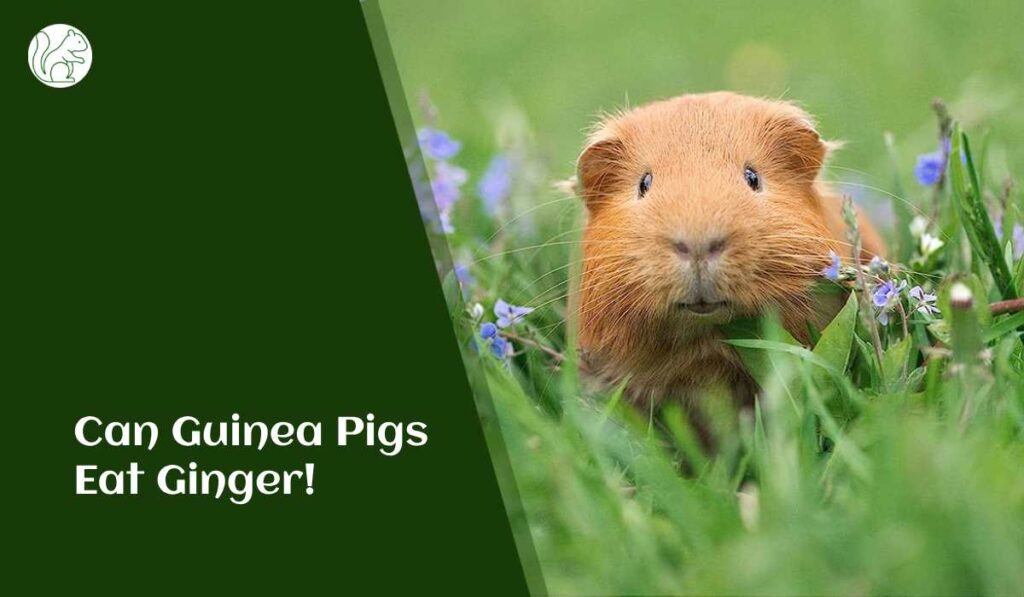In this article, we will explore whether can guinea pigs eat ginger and delve into the potential benefits and risks associated with feeding ginger to these small, lovable pets. If you’re a guinea pig owner, you probably know how important it is to provide a balanced and nutritious diet for your furry friend. While guinea pigs enjoy a variety of fruits and vegetables, it’s essential to be aware of what foods are safe for them to consume. One such food that often sparks curiosity is ginger.

What is Ginger?
Ginger, scientifically known as Zingiber officinale, is a flowering plant that originated in Southeast Asia. It is widely used as a spice and has a distinct, pungent flavor and aroma. Ginger is renowned for its potential health benefits and is commonly incorporated into various cuisines and traditional medicines worldwide.
Nutritional Value of Ginger
Ginger is not particularly known for its nutritional value, but it contains several essential nutrients that can contribute to a healthy diet. Some of the key nutrients found in ginger include:
- Vitamin C: Ginger contains a moderate amount of vitamin C, which is important for boosting the immune system and promoting overall health.
- Potassium: Ginger is a decent source of potassium, an essential mineral that helps regulate blood pressure and maintain proper heart function.
- Magnesium: Magnesium is involved in various bodily functions, including muscle and nerve function, and ginger provides a small amount of this vital mineral.
- Dietary Fiber: Ginger contains dietary fiber, which aids in digestion and promotes a healthy gastrointestinal system.
While these nutrients are beneficial for humans, it’s important to evaluate whether they provide similar advantages for guinea pigs.
Can Guinea Pigs Eat Ginger?
Guinea pigs have delicate digestive systems, and their diet primarily consists of fresh hay, quality pellets, and a variety of fresh vegetables and fruits. When it comes to ginger, it is generally not recommended to include it in a guinea pig’s diet. While ginger itself is not toxic to guinea pigs, it is considered an “occasional” or “treat” food, rather than a regular part of their diet.
Potential Benefits of Feeding Ginger to Guinea Pigs
Although ginger should be given sparingly, there are potential benefits associated with providing small amounts as an occasional treat. Some of the possible advantages include:

- Anti-inflammatory properties: Ginger contains compounds that possess anti-inflammatory properties, which may be beneficial for guinea pigs with certain health conditions. However, it’s important to consult a veterinarian before introducing ginger to your guinea pig’s diet.
- Digestive aid: In humans, ginger is often used to alleviate digestive issues such as nausea and bloating. Similarly, in small amounts, ginger may provide digestive support for guinea pigs, especially if they are experiencing mild tummy troubles.
Risks and Considerations
While ginger may offer certain benefits, there are also risks and considerations to keep in mind before incorporating it into your guinea pig’s diet:
- Spiciness and strong flavor: Guinea pigs have sensitive taste buds, and the strong flavor of ginger may not be appealing to them. They are naturally inclined to prefer sweeter vegetables and fruits, so ginger might not be well-received.
- Digestive sensitivity: Guinea pigs have delicate digestive systems, and introducing new foods, especially those with unique flavors like ginger, can potentially upset their stomach. It’s crucial to introduce new foods gradually and observe how your guinea pig responds.
Conclusion
In conclusion, while ginger is not toxic to guinea pigs, it should be given sparingly and as an occasional treat. Guinea pigs have specific dietary requirements, and their primary diet should consist of hay, pellets, and a variety of fresh vegetables and fruits. Although ginger may possess certain benefits such as anti-inflammatory properties and digestive support, it’s important to consult with a veterinarian before introducing it to your guinea pig’s diet. Remember to always prioritize your guinea pig’s well-being and provide a balanced, nutritious diet to ensure their optimal health and happiness.
